Anne Askew
Jump to navigation
Jump to search
UNFORGETTABLE CHARACTER QUOTES
DEFINING EPISODES | MEMORABLE SCENES
PHOTOS
| | |||
| born c.1521- executed July 16, 1546 by order of King Henry VIII Character's backstory: Anne was the daughter of a gentleman at court. In 1536, she married Thomas Kyme of Friskney, who had been betrothed to Anne’s sister, Martha. After Martha’s death, the younger sister was substituted for the older one. After giving birth to two children, Anne’s Zwinglian convictions led to disputes with the clergymen of Lincoln and eventually to her eviction from Kyme’s house in December, 1544. Anne borrowed money from one of her brothers and set out for London with a maidservant. She was arrested there for heresy but acquitted in June, 1545. Arrested a second time in 1546, she was tortured and finally burnt at the stake. She was burnt at Smithfield, London on July 16, 1546. She was 25. Anne Askew is the only woman on record to have been tortured in the Tower, after being taken there in 1546 on a charge of heresy. Sir Anthony Kingston (son of Sir William Kingston), the Constable of the Tower of London, was ordered to torture Anne in an attempt to force her to name other Protestants and in so doing implicate Catherine Parr, the Queen consort. Anne declined to name anyone at all, so she was asked to remove all her clothing except her shift, which she did. Anne then climbed onto the rack and lay quite still as she was spread-eagled and her wrists and ankles fastened. Again, she was asked for names, but she would say nothing. The wheel of the rack was turned, pulling Anne along the device and lifting her so that she was held taut about five inches above its bed and slowly stretched. In her own account written from prison, Anne said that she fainted with the pain. It was then that she was lowered and revived. This procedure was repeated twice more before the Lieutenant of the Tower stopped it. Kingston was so impressed with the way Anne behaved that he refused to carry on torturing her, left the Tower, and sought a meeting with the King at his earliest convenience to explain his position and also to seek his pardon. Henry VIII pardoned Kingston but did not put an end to the torture. Henry VIII's Lord Chancellor Richard Rich and Lord Thomas Wriothesley (Risley in the series) took over. Anne Askew was carried to execution in a chair as she could not walk after her torture. She was dragged from the chair to the stake which had a small seat attached to it, which she sat astride. Those who witnessed her execution were impressed by her bravery, and many witnesses reported that throughout the long execution she did not scream until the flames reached her chest, whereas the three men burned with her cried out from the first touch of the fire. See also: A Short Biography of Anne Askew Gentility: From a notable Lincolnshire family. "...born of such stock and kindred that she might have lived in great wealth and prosperity, if she would rather have followed the world than Christ" John Foxe Position: Gentlewoman Personality type: Zealous. Proselytizing. Signature look: Known as the "Fair Gospeler" so she might have been pretty. Endearing traits: True to her faith. Never gave in to torture when she was racked in the Tower. Resisted her torturers when they tried to force her to reveal the names of other reformers. Brave; sincere in her beliefs. Courageous enough to defy the fearsome Henry VIII. Did not cave in to pressure. Resisted the verbal and psychological bullying, as well as the physical torture, inflicted by such ruthless men as Richard Rich and Lord Thomas Wriothesley (Risley). Annoying traits: Dogmatic; stubborn. Put everything else in her life second to her zealous preaching and proselytizing. Lack of balanced perspective. | 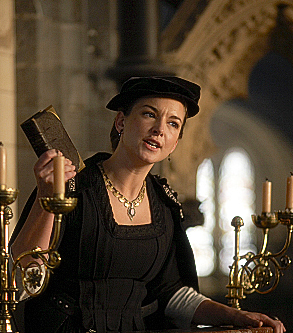 "The Fair Gospeler" "I have read that God made man; but that man can make God, I never yet read, nor I suppose ever shall." ~ Anne is said to have spoken these words during her torture when asked if she had said that priests could not make the body of Christ See also : The Poetry of Anne Askew
Click EasyEdit to update this page! (Don't see the EasyEdit button above? <a href="/#signin" target="_self">Sign in</a> or <a href="/accountnew" target="_self">Sign up</a>.)
| ||
CHARACTER CONNECTIONSFamily members: Father: Sir William Askew (also spelled Ayscough) - a gentleman at court who lived from 1490 to 1541. He was one of the jurors in the trial of Anne Boleyn. He was described as a 'welcome guest' in Princess Mary Tudor's household, indicating that he was a religious conservative (Catholic). He is said to have physically forced his daughter, Anne Askew, to marry Thomas Kyme. He died in 1541, five years before his daughter's execution. Mother: Elizabeth Wrottesley Sister: Martha, who had been betrothed to Thomas Kyme. Martha died before her wedding to Kyme could take place, thereby obliging Anne to 'substitute' as bride. Anne was reluctant to do so, but was forced into the marriage by her father. Romance(s): None, really. She was forced to marry her husband Kyme merely because her older sister had died. So she was simply a 'replacement bride.' Friends: Queen Catherine Parr Princess Elizabeth Tudor Enemies: King Henry VIII, who had her burned at the stake Henry's Anglican church establishment, especially those who still held Roman Catholic sympathies Henry's ministers such as Richard Rich and Wriothesley/Risley (who personally racked her in the Tower) Princess Mary Tudor (?) |
UNFORGETTABLE CHARACTER QUOTES
| |
DEFINING EPISODES | MEMORABLE SCENES
| |
PHOTOS
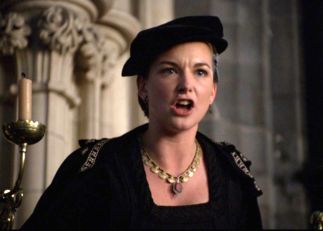 | 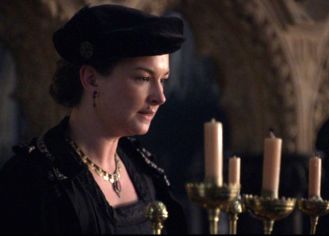 |
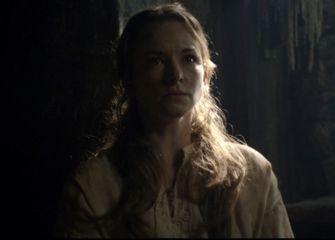 | 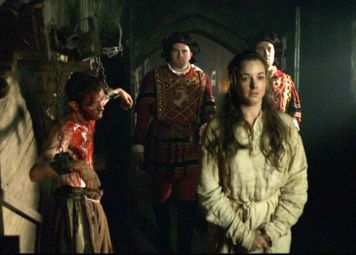 |
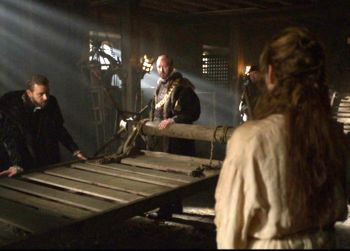 | 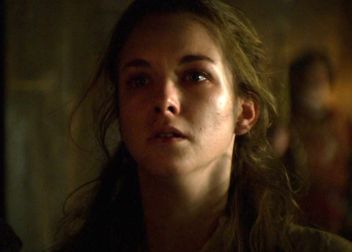 |
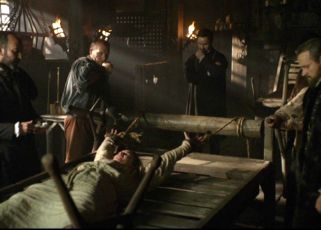 | 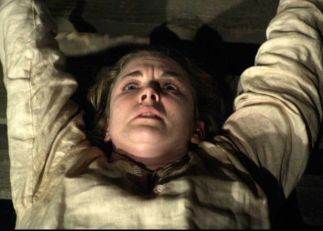 |
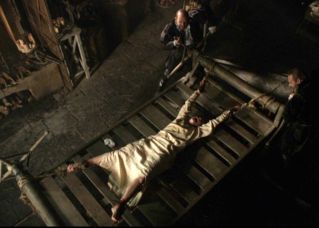 | 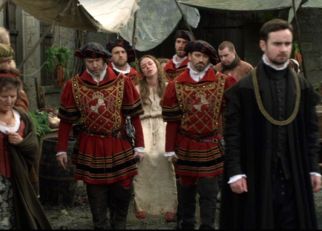 |
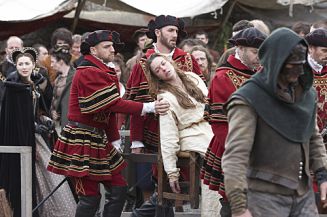 | 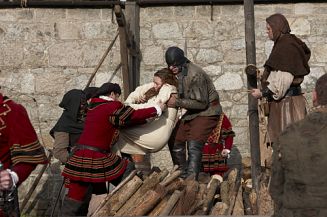 |
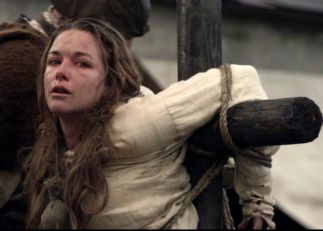 | 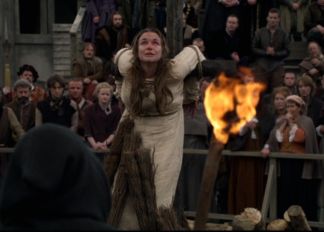 |
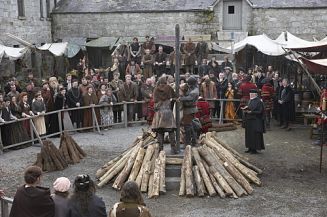 | 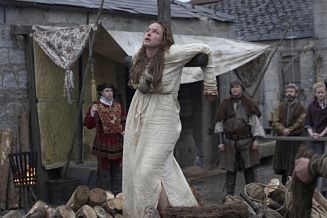 |
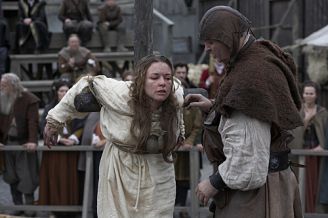 | 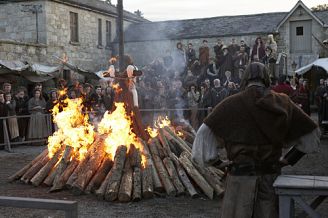 |